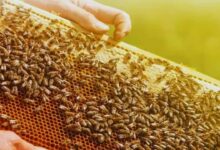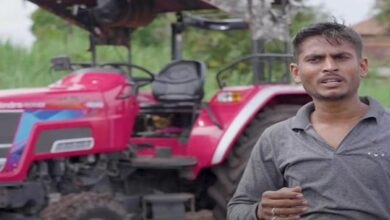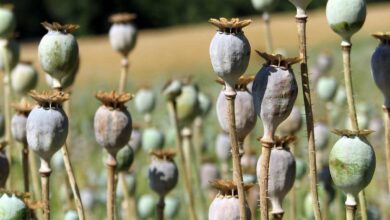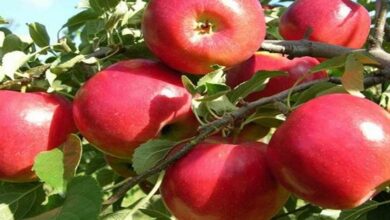Success Story: This farmer from Bikaner became a millionaire by adopting profitable farming instead of traditional farming
Success Story: Growing conventional crops like wheat, gram, mustard, guar, and peanuts has given way to growing cucumbers in a polyhouse, according to Vinod Bishnoi, a farmer from Lunkaransar Tehsil in Bikaner, Rajasthan. His interest in contemporary farming techniques has resulted in a more productive farming style, which has helped him generate Rs 80 lakhs in revenue annually.
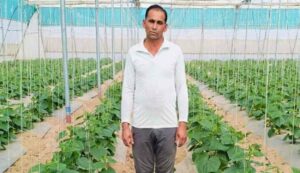
Because of his successful acceptance of modern agricultural methods, Bishnoi is a prime illustration of how adopting technology can increase yields and profitability. His experience serves as an example of how contemporary agriculture may open doors for farmers.
A Transition from Conventional to Contemporary Agriculture
Vinod’s family has a long history in agriculture. Since he was young, farming has been his passion. despite the fact that Vinod has only completed basic school to the eighth grade. He has extensive expertise and a wide range of agricultural knowledge. He started farming in the old-fashioned manner. His agricultural methods resulted in a reduced output and little income. He felt that something needed to change as a result of this.
His uncle, Atmaram Bishnoi, a forward-thinking farmer who was already growing cucumbers in a polyhouse, was the moment that changed his life. He explained the idea to him. Six years ago, Vinod took a chance and built a polyhouse on one acre of his property after being impressed by his uncle’s success.
Establishing a Polyhouse: Funding and Government Assistance
The initial expenditure required to establish a polyhouse has been substantial. The project’s total cost came to between Rs 40 and Rs 42 lakh. His personal expenses were Rs 14.25 lakh, while the government’s 70% subsidy greatly reduced his expenses.
Vinod was able to establish a regulated agricultural environment that shielded his crops from harsh weather conditions thanks to this investment. This guaranteed steady output and increased productivity. His choice was quickly validated by the outcome, as his cucumber harvests grew. He started to gain financially in ways that were substantially more than anything he had previously experienced with conventional farming.
The expenses and profitability of growing cucumbers in a polyhouse
Vinod’s decision to switch to polyhouse farming proved to be quite successful. Cucumber cultivation costs about Rs 2 lakh per acre of land, but the yield might reach Rs 10 lakhs. Thus, on the same land, they made a respectable net profit of almost Rs 8 lakh.
In a polyhouse, cucumbers may be produced two or three times a year. The yearly profits from a single acre vary between Rs 12 and Rs 15 lakh. Vinod has successfully expanded his agricultural activities to generate substantially more revenue than he did before using many cycles of production.
Difficulties & Overcoming Barriers
Vinod has several issues with polyhouse farming. Whiteflies, nematodes, and the fatal Crimea virus were the primary pests and illnesses that harmed his crops. There is currently no long-term solution to the Crimea virus issue.
He used a package-based system of chemical and organic fertilizers to overcome these obstacles and ensure the health of his crops. He didn’t lose that product because of field surveillance and early illness diagnosis. His methodical approach to crop protection significantly boosted the quantity and quality of his cucumbers.
Strategy for Marketing and Sales
To make sure his cucumbers reach a variety of marketplaces, Vinod sells in four to five neighboring mandis. His highest price for this premium fruit was Rs 45 per kg, which is far more than what a cucumber cultivated traditionally would get. This demonstrates that farmers may get higher prices and increase their profits with the correct technology, quality assurance, and efficient market access.
Diversification: Sustainability and Dairy Farming
In addition to growing cucumbers, Vinod has ten Sahiwal breed cows and operates a dairy company. In his fields, the cow excrement is turned into organic manure, which improves soil fertility and increases crop yield. This diversification encourages sustainable farming methods in addition to providing an extra revenue stream.
Vinod Bishnoi’s tale serves as an illustration of how adopting contemporary agricultural methods may turn a farm into a very lucrative enterprise. His shift from conventional farming to sophisticated polyhouse agriculture has guaranteed his financial stability and encouraged other farmers to adopt cutting-edge techniques.
With a sustainable farming strategy and an annual turnover of Rs 80 lakh, Vinod’s success serves as an example for farmers looking to boost profitability, reduce risks, and raise production. His experience demonstrates how knowledge, tenacity, and flexibility may influence how agriculture develops in the future.

